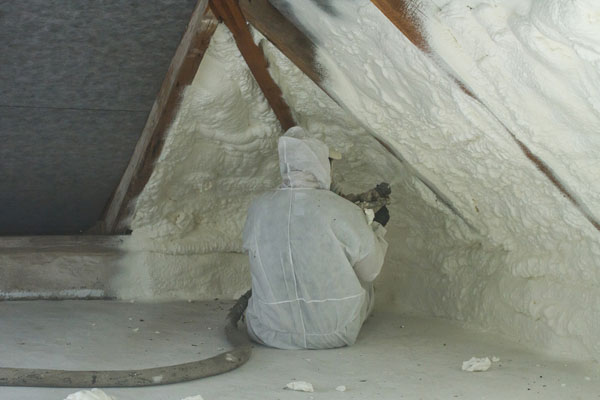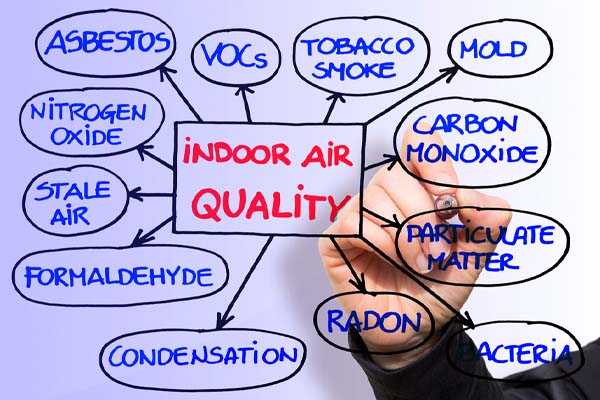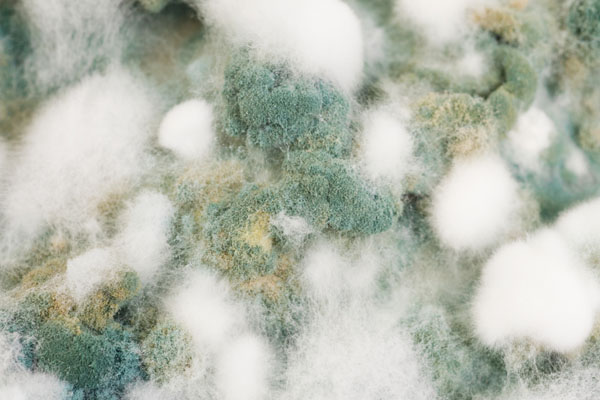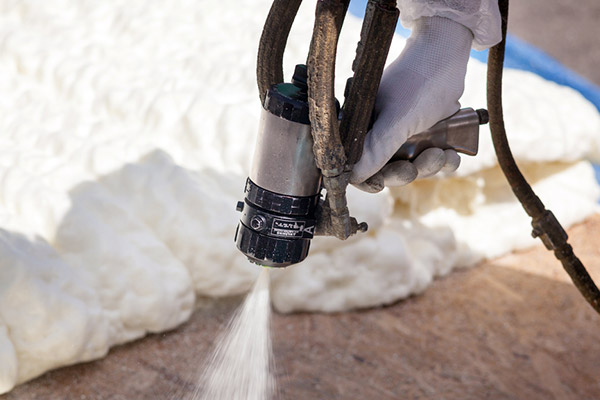The Hidden Link: Insulation & Your Health

Achieving both energy efficiency and comfort in your home is closely tied to effective insulating materials. A well-insulated home acts as a barrier against temperature fluctuations. It keeps indoor spaces comfortable while reducing the need for excessive heating or cooling. However, insulation’s impact goes beyond regulating temperature. It is also key in maintaining indoor air quality. The connection between insulation and indoor air quality can significantly influence your living environment, contributing to healthier and more breathable air throughout your home.
Related Article: The Unexpected Places You Should Be Insulating Your Colorado Home
Understanding Insulation Materials
Contents

Insulation is a cornerstone of energy-efficient homes. It is essential to understand the variety of materials used.
- Fiberglass Insulation: Made from tiny glass fibers, fiberglass insulation is widely used due to its affordability and versatility. It comes in batts, rolls, and loose-fill forms, making it suitable for various spaces.
- Cellulose Insulation: Comprising recycled paper treated with fire-retardant chemicals, cellulose insulation is environmentally friendly and effectively reduces heat transfer.
- Spray-Foam Insulation: This insulation material expands upon application. It creates an airtight seal, preventing air leakage. It is good for sealing gaps and cracks in attics and walls.
- Mineral Wool Insulation: Made from mineral fibers, this type of insulation is resistant to fire, moisture, and pests. It is commonly used for soundproofing and insulating walls, attics, and basements.
- Polyurethane Foam Insulation: Available as open-cell and closed-cell foam, polyurethane foam provides excellent thermal resistance and is known for its high R-value, reducing energy consumption.
- Reflective Insulation: This type of insulation incorporates reflective materials to deflect radiant heat, making it suitable for attics, roofs, and walls.
The choice of insulation material also resonates through indoor air quality and health considerations. Certain materials can release harmful particles or fumes if not properly selected and installed.
Hiring a professional insulation company is vital for accurate installation, ensuring safety, and maintaining indoor air quality. A responsible company prioritizes material selection, installation techniques, and ventilation strategies to create a comfortable, efficient, and healthy living environment.
Related Article: The Environmental Impact of Proper Insulation: A Closer Look
Insulation, Indoor Air Quality & Health Effects

Indoor air quality (IAQ) profoundly impacts our health and well-being. Considering that most people spend a lot of time indoors, the air quality directly influences our comfort and health. Clean, fresh air is essential for good respiratory function, cognitive performance, and overall wellness.
Poor insulation can contribute to indoor air pollutants. Inadequate insulation can lead to air leaks that allow outdoor pollutants, moisture, and allergens to enter the living spaces. Improperly insulated areas can also become breeding grounds for mold and mildew growth, releasing harmful spores into the air.
Indoor air pollution is linked to various health problems. Exposure to particulates or pollutants like volatile organic compounds (VOCs), mold spores, dust mites, and pet dander can trigger or exacerbate respiratory problems such as asthma, allergies, and bronchitis. Poor indoor air quality contributes to fatigue, headaches, and even long-term health effects.
Related Article: Important Insulation Information When Buying a House In Fort Collins
Moisture and Mold Concerns

Insulation plays a crucial role in managing moisture levels within homes. Poorly insulated spaces can lead to condensation issues when warm air meets cooler surfaces. The excess moisture can seep into walls and ceilings, fostering an environment ripe for mold growth.
Insulation can either prevent or promote mold growth, depending on its effectiveness in moisture management. Properly installed insulation with vapor barriers helps prevent moisture infiltration. It minimizes the conditions necessary for mold to thrive. Inadequate insulation can trap moisture, creating a perfect breeding ground for mold.
Hiring professionals for insulation installation is vital to address moisture and mold risks. Expert insulation companies are well-versed in proper installation techniques, ensuring that vapor barriers are correctly placed to prevent moisture accumulation. They can assess your home’s specific needs, recommend suitable insulation materials, and employ strategies to mitigate mold risks.
Radon Gas and Air Sealing
The relationship between insulation and radon gas infiltration lies in air movement. Improperly sealed gaps and cracks in a home’s foundation or walls can allow radon gas, a radioactive and naturally occurring substance, to seep indoors. Insufficient insulation can worsen this issue by creating pathways for radon to infiltrate living spaces.
Effective air sealing is a pivotal line of defense against radon gas entry. Professional insulation companies have the expertise to identify and seal potential entry points for radon. Proper air sealing helps prevent radon intrusion and enhances overall energy efficiency and indoor air quality.
Exposure to radon gas is associated with serious health risks, primarily an increased risk of lung cancer. By combining proper insulation techniques with diligent air sealing, the likelihood of radon infiltration is minimized. It reduces the health hazards linked to prolonged exposure.
Related Article: Clearing Up Fallacies About Spray Foam Insulation
Off-Gassing and VOCs

Off-gassing refers to the release of harmful chemicals or gases from certain insulation materials over time. Insulation materials can release volatile organic compounds (VOCs) into the indoor air when improperly selected or installed. This phenomenon can potentially compromise indoor air quality.
VOCs, or Volatile Organic Compounds, are substances or chemicals released as gases from various products, including certain insulation materials. Prolonged exposure to VOCs can lead to serious health effects like eye, nose, and throat irritation, headaches, and even more severe respiratory issues.
Opting for a professional insulation company that prioritizes low-VOC and safe insulation materials offers several advantages. These companies are well-versed in identifying materials with minimal off-gassing potential and selecting products that meet stringent safety standards.
Related Article: What Is Thermal Bridging In Colorado Homes?
Insulation Upgrades for Improved Health
Upgrading insulation offers many benefits for indoor air quality and overall health. Improved insulation enhances temperature regulation, reducing the likelihood of moisture buildup that can result in mold growth. This, in turn, prevents the release of harmful spores and allergens into the air, promoting a healthier indoor environment.
Collaborating with a professional insulation company is key to assessing and enhancing insulation quality. These experts can evaluate your current insulation, recommend suitable upgrades, and ensure proper installation to minimize the risk of indoor air pollutants and moisture-related issues.
Maintaining and monitoring insulation is crucial to safeguard indoor air quality. Regularly inspecting insulation for signs of damage, ensuring proper ventilation, and promptly addressing any leaks or gaps can prevent air quality deterioration. Maintaining proper humidity levels and having ventilation systems serviced regularly can further contribute to a healthy indoor environment.
Ventilation and Insulation Balance
Proper ventilation is essential to complement insulation efforts. While insulation seals your home to prevent heat transfer, it can also trap pollutants and moisture. Adequate ventilation introduces fresh air, effectively diluting indoor pollutants and expelling moisture, improving indoor air quality.
Achieving a balanced approach to insulation and ventilation is crucial for optimal indoor air quality. While insulation maintains energy efficiency and comfort, ventilation ensures the constant circulation of clean air. A harmonious balance prevents stagnant, stale air and mitigates the risk of mold growth and indoor air pollutants.
A professional insulation company can recommend appropriate ventilation solutions. These experts can assess your home’s specific needs, considering insulation levels, local climate, and occupancy patterns. By working with professionals, you can ensure insulation and ventilation work together to create a healthier and more comfortable home.
Related Article: Fort Collins Attic Insulation Removal: What Goes into the Process?
Conclusion
It may not be obvious, but insulation can significantly affect the residents’ health. Proper insulation can promote healthy indoor air quality that supports the health of every member of the household. On the other hand, insufficient insulation can cause health problems, especially for young kids and the elderly. Don’t risk your health and your loved ones’ well-being. Consult and seek assistance from an experienced and reputable insulation company to make sure your home is well-insulated.
Related Article: The Importance Of Home Air Sealing On Energy Costs In Colorado
Insulating Materials In Fort Collins, CO
If you are considering air sealing or upgrading your home’s insulation, it is best to seek professional guidance. However, not all professionals offer the same level of quality and pricing. Always make sure you work with the best professionals available in your area. Fortunately, residents of Fort Collins and nearby areas can turn to Ascend Construction for top-notch service.
At Ascend Construction, we specialize in insulation removal and installation, air sealing, energy conservation, energy audits, whole-house fan installations, and more. We’re confident that our service stands out from the rest.

For a free consultation with our experts, get in touch with Ascend Construction today. Our team can offer practical solutions to address any problem areas in your Fort Collins home. We guarantee affordable pricing and high-quality work. Click here to contact us, or call us using the button below. We offer free, no-obligation, in-home consultations.
Ascend Construction
4115 County Road 19
Fort Collins, CO, 80524
(970) 420-5495